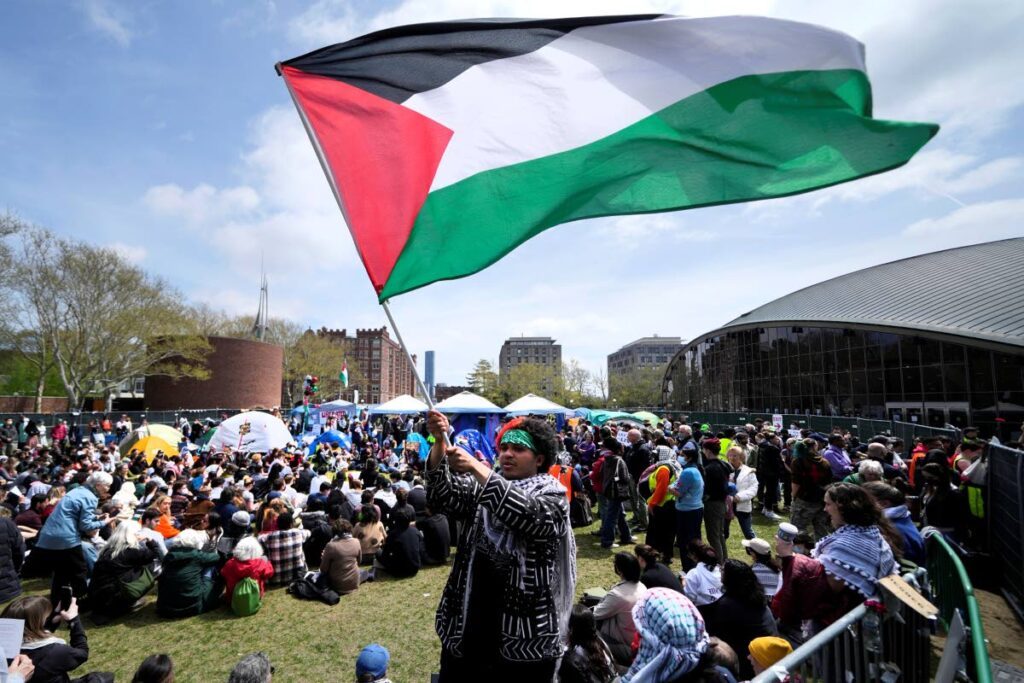In our thousands, in our millions

AMINA IBRAHIM-ALI
A GRANDMOTHER from Trinidad recently prepared maqluba or "upside-down rice" for her grandchildren in Canada. She roasted the vegetables, seared the aromatic meat, and then layered each ingredient into a simmering pot between rice.
Dinner festivities began with a photo shoot of the children wearing the keffiyeh. Then, in time to Palestinian music, the pot was flipped, revealing a sumptuous, variegated mound of rice.
This was one way of imprinting Palestinian culture on young, impressionable minds, at a time when the survival of the Palestinian state and, by extension, its heritage remain precariously under threat.
Protest efforts against Israel’s war on Gaza have been shaped by the talents that people were blessed with. Months ago, the scholars and activists urged us to write, sing, make placards, march. Write, if you can write. Sing, if you can sing, they said. Protest. March.
Journalists in Gaza like Motaz Azaiza, Hind Khoudary, Bisan Owda and Plestia Alaqad, without the shadow of a doubt, drew on their skills most fully, capturing the genocide day by day and minute by minute on Gaza’s behalf for the rest of the world, showcasing an unprecedented level of resolve as they themselves suffered (and suffer) through the indescribable conditions of war while fighting for their own lives.
And because such individual efforts in the form of live news reports, protests, marches, poetry, articles and songs formed a collective whole, the narrative that the world once knew, and accepted, began to disintegrate. The reality of the 75-year-old Nakba (which means “catastrophe” in Arabic and refers to the mass displacement and dispossession of Palestinians during the 1948 Arab-Israeli war) became as clear as day, and some even declared that Gaza had won the social media war.
That individual efforts could combine so powerfully into a collective whole was stunning. The Palestinian-led BDS (Boycott, Divestment and Sanctions) movement inspired by anti-apartheid efforts in South Africa was another sign of victory as international companies engaged in the violation of Palestinian rights and, by extension, the genocide were visibly undermined.
But given that apartheid in South Africa was finally and completely toppled through the collective efforts of activism, resistance and sanctions, new talents must be recognised and greater potential to write, march, boycott, protest and sing unlocked. We must remain consistent in our efforts and stop when, and only when, a ceasefire is achieved, and when Palestinians are treated as equal to any and everyone else.
Stephen McCloskey, the director of the Centre for Global Education in Belfast, speaks of a hierarchy of war victims predicated on “troubling binaries” as “global north/global south; white/coloured; deserving/undeserving; and civilised/uncivilised.” Such binaries, he says, cloud the lens of media houses and governments alike.
Once referred to as "human animals," Gazans continue today to bury their dead as they live among piles of rubble and hazardous waste under heatwave conditions, where their water sites, schools and hospitals have been damaged or irrevocably destroyed, and the food supplies being sent to them cannot reach them.
But the tide is turning. Protests continue in cities all over the world: in London, Port-of-Spain, Ontario, Chicago, Washington and Paris. "Disclose, divest, we will not stop, we will not rest!" university students chant as they call for the removal of university support from companies involved in practices which they find to be objectionable, practices which, according to American rapper Macklemore, are influenced by “dollars and the colour of your pigment.”
As we strive individually and collectively against oppression and exploitation, we walk the talk of the Universal declaration of Human Rights, that all humans beings are born free and equal in dignity and rights. “In our thousands, in our millions, we are all Palestinians” (Ghassan Kanafani).

Comments
"In our thousands, in our millions"